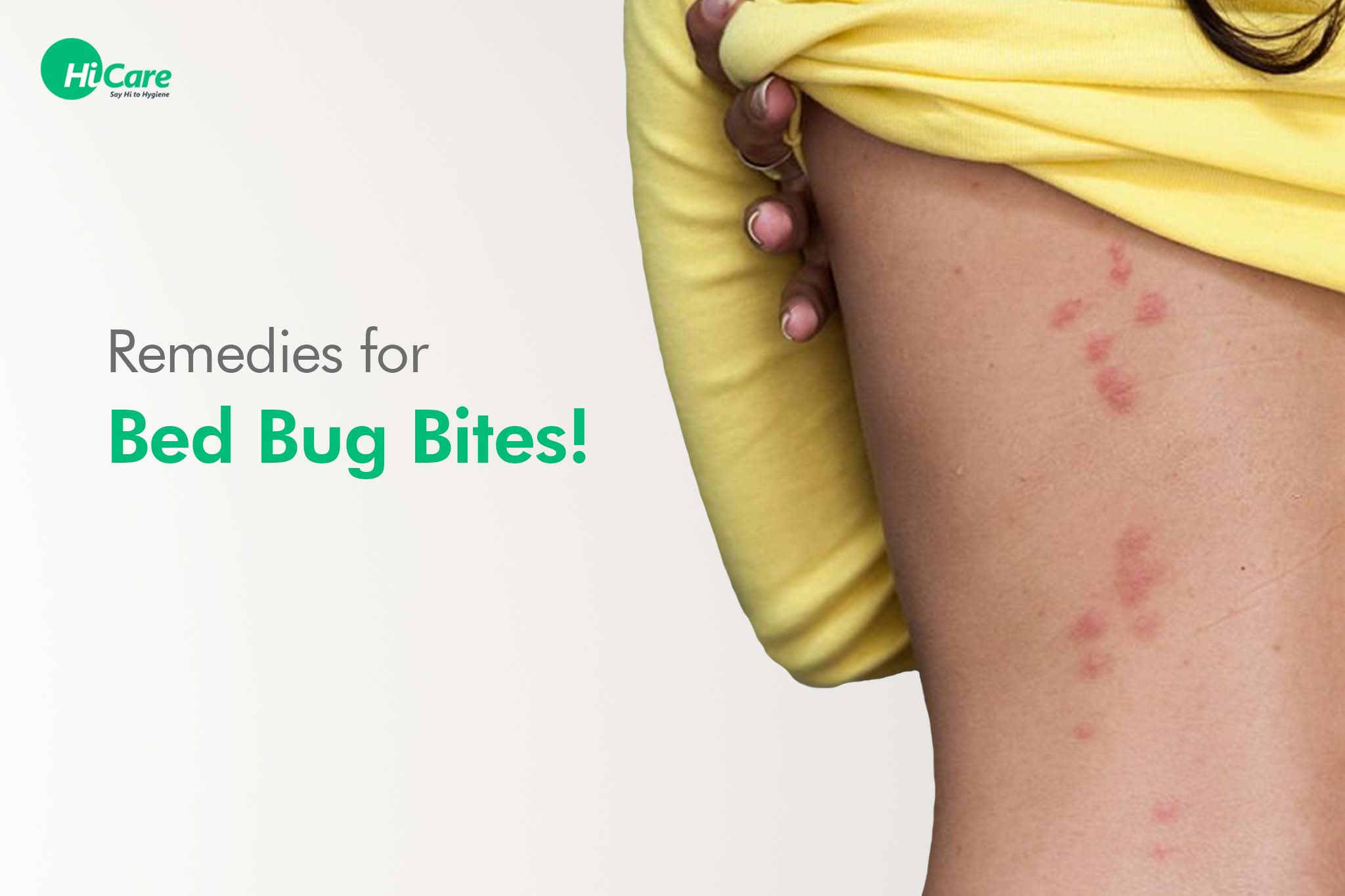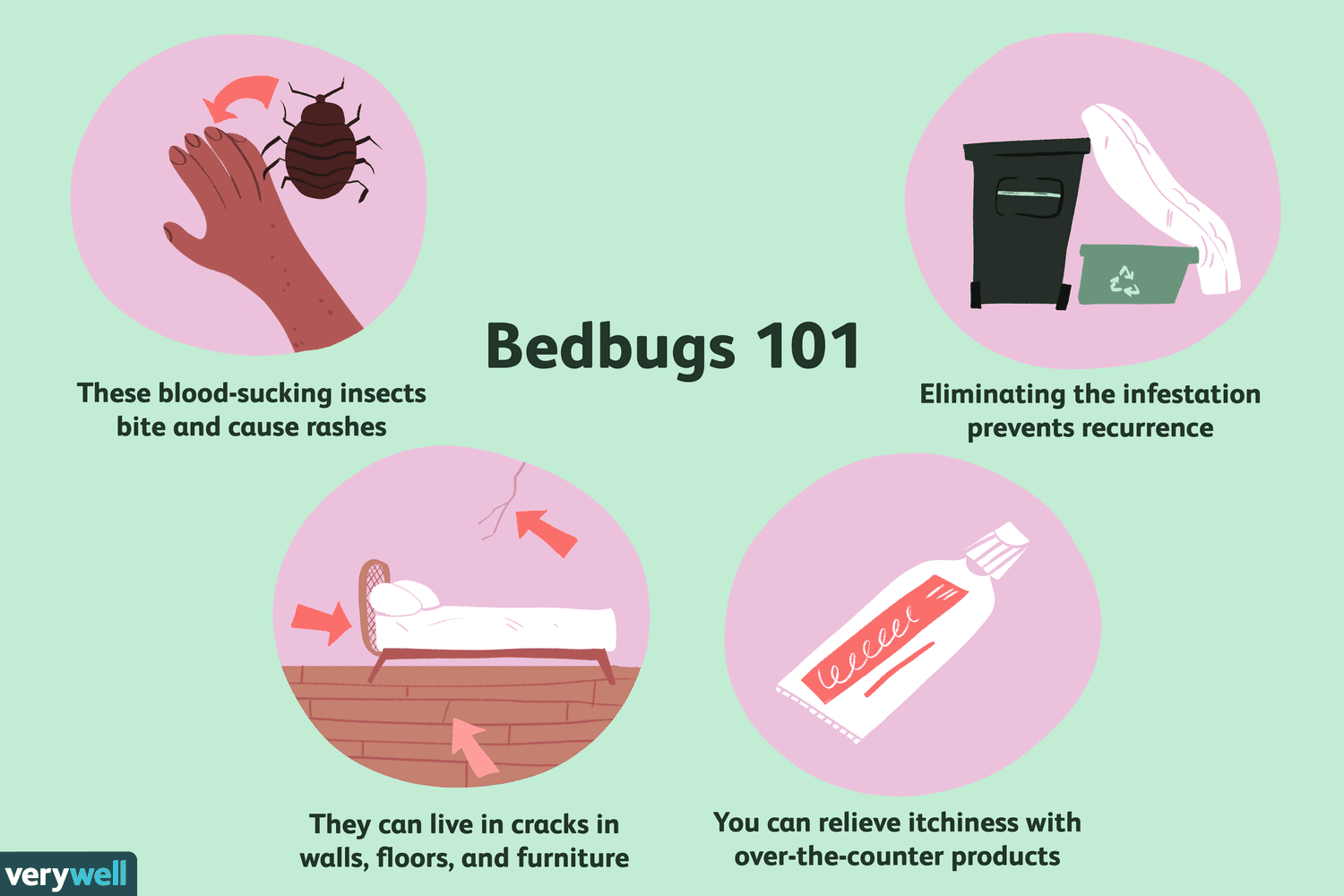To treat bed bugs on skin, wash the affected area with soap and water, apply antiseptic cream to prevent infection. Dealing with bed bug bites promptly can help reduce itching and discomfort.
It is essential to take quick action to address skin irritation caused by bed bugs to prevent further complications. Seeking medical advice may be necessary if the symptoms persist or worsen. Additionally, using over-the-counter anti-itch creams or taking antihistamines can also provide relief from itching and inflammation.
Ensuring proper hygiene and keeping living spaces clean can help prevent future encounters with bed bugs, reducing the risk of skin irritations.

Credit: www.terminix.com
Recognizing Bed Bug Bites
Identifying bed bug bites can be crucial in determining whether you have encountered these pesky insects. The following information will help you understand the symptoms and appearance of bed bug bites, allowing for timely treatment and prevention.
Identifying The Symptoms
When bed bugs bite, they inject an anesthetic and an anticoagulant into your skin. This ensures you do not feel the bite immediately and allows them to freely feed on your blood. However, after some time, certain symptoms start to appear:
- Red, itchy bumps: Bed bug bites often appear as small, red, raised bumps on the skin.
- Clusters or lines: The bites may form in clusters or lines, often indicating multiple feeding points.
- Severe itching: The bites can be extremely itchy and can lead to intense scratching.
- Inflammation: Bed bug bites can cause skin inflammation and irritation.
These symptoms are typical reactions to bed bug bites, but it’s important to note that everyone’s body reacts differently. Some individuals may not experience any symptoms at all, while others may have severe reactions.
Understanding The Appearance Of The Bites
Identifying the appearance of bed bug bites can also help you recognize their presence.
| Bite pattern | Description |
|---|---|
| Linear pattern | The bites may appear in a straight line or in a linear pattern. This is often a result of the bed bug’s feeding behavior, where they bite multiple times in a row. |
| Small, red bumps | Bed bug bites typically appear as small, red bumps similar to mosquito bites. However, they may be slightly larger and more swollen. |
| Raised and itchy | These bites are usually raised and accompanied by intense itching, which can lead to further skin irritation if scratched excessively. |
If you notice bites that fit the descriptions above, it’s important to take the necessary steps to address and eliminate any potential bed bug infestation.
By recognizing bed bug bites and understanding their symptoms and appearance, you can effectively identify these nuisances and seek appropriate treatment swiftly.
Immediate Steps After Discovering Bed Bug Bites
When bed bug bites are discovered, taking immediate steps is crucial to prevent further irritation and discomfort. Properly cleaning the affected areas and avoiding scratching are essential in soothing the skin and aiding the healing process.
Cleaning The Affected Areas
- Wash the bites with mild soap and water to remove any bacteria.
- Apply a cold compress to reduce swelling and itching.
Avoiding Scratching
- Resist the urge to scratch to prevent infection and worsening of the bites.
- Use an anti-itch cream or lotion to soothe the affected areas.
Home Remedies For Soothing Bed Bug Bites
Apply a cold compress to the affected area for relief.
Calamine lotion or antihistamine cream can help reduce itchiness.
Home Remedies for Soothing Bed Bug Bites:
- Applying Cold Compress: Use a cold compress to alleviate itching and swelling.
- Using Calamine Lotion or Antihistamine Cream: Apply calamine lotion or antihistamine cream for relief.

Credit: www.wikihow.com
Medical Treatments For Bed Bug Bites
If you’ve been unfortunate enough to experience bed bug bites and are looking for effective ways to treat them, medical treatments can provide relief and help prevent infection. Consulting a doctor and considering prescription medications are two crucial steps towards managing bed bug bite symptoms. Read on to learn more about these medical treatments.
Consulting A Doctor
If you have severe bed bug bites or an allergic reaction, it’s essential to consult a doctor. Your doctor can evaluate the extent of the bite and provide appropriate treatment recommendations. They may examine the affected area, ask about your symptoms, and potentially recommend diagnostic tests if necessary.
Prescription Medications
In some cases, your doctor may prescribe medications to alleviate the discomfort caused by bed bug bites. These prescription medications can assist in reducing itching, inflammation, and preventing infection. Some commonly prescribed medications for bed bug bites include:
- Antihistamines: These medications are often recommended to relieve itching and inflammation associated with bed bug bites. Antihistamines work by blocking histamine, a chemical released by the body during an allergic reaction.
- Corticosteroids: Corticosteroid creams or ointments may be prescribed to reduce inflammation and itching. These products can help alleviate the discomfort caused by bed bug bites and promote healing.
- Topical antibiotics: If your bed bug bites become infected or if you’ve scratched excessively, your doctor may prescribe a topical antibiotic to prevent or treat the infection.
- Oral antibiotics: In more severe cases of infection, your doctor may prescribe oral antibiotics to combat the infection and promote healing. It’s crucial to follow your doctor’s instructions regarding the dosage and duration of the antibiotic treatment.
Remember, these prescription medications are only available through a healthcare professional, and it’s important to follow their guidance closely to ensure safe and successful treatment.
Preventing Future Bed Bug Infestations
Preventing future bed bug infestations is essential to protect yourself from the pesky critters. By taking proactive measures, you can greatly reduce the risk of encountering these unwelcome pests again. This section will provide you with valuable tips and guidance to effectively prevent future bed bug infestations in your home.
Bed Bug Prevention Tips
- Inspect secondhand furniture and clothing thoroughly before bringing them into your home.
- Keep your living space clutter-free to minimize bed bug hiding spots.
- Use protective mattress covers to encase your mattress and box spring, trapping any existing bed bugs and preventing future infestations.
- Regularly vacuum and clean your home to eliminate any potential hiding spots for bed bugs.
- Be cautious when traveling and inspect hotel rooms for any signs of bed bugs before unpacking.
Seeking Professional Extermination Assistance
When it comes to severe bed bug infestations, seeking professional extermination assistance is vital in effectively eliminating the problem. Professional exterminators have the expertise and necessary tools to eradicate bed bugs from all their hiding spots, ensuring thorough extermination and preventing future re-infestations.

Credit: hicare.in
Frequently Asked Questions For How To Treat Bed Bugs On Skin?
What Are The Symptoms Of Bed Bugs On Skin?
Bed bugs can cause itchy, red welts on the skin, often in a line or clustered pattern. Some may experience allergic reactions or even severe skin infections due to scratching.
How Can I Relieve Itching From Bed Bug Bites On Skin?
Applying a cold compress or anti-itch creams like calamine lotion can help to relieve itching. Avoid scratching to prevent further irritation and potential infections.
What Are The Potential Risks Of Bed Bug Bites On Skin?
In addition to itching and discomfort, scratching bed bug bites can lead to skin infections. Some individuals may also experience allergic reactions to bed bug saliva. Seek medical attention if severe symptoms occur.
Conclusion
Taking immediate action is crucial when treating bed bugs on your skin. By following these methods and remedies mentioned such as using essential oils, washing bedding regularly, and seeking professional help if necessary, you can effectively eliminate bed bugs and prevent further infestations.
Remember, early detection and proactive measures are key to keeping your skin free from these pesky pests. Keep your skin safe and bug-free, and sleep tight!
Related posts:

I’m MD Tanvir, and I bring years of expertise gained from working closely with pest control companies to the forefront. My journey in the industry has inspired me to launch Bug Battler, a platform aimed at equipping people with the know-how to combat pests autonomously. Through Bug Battler, I aim to empower individuals with practical insights to tackle pest infestations effectively.

